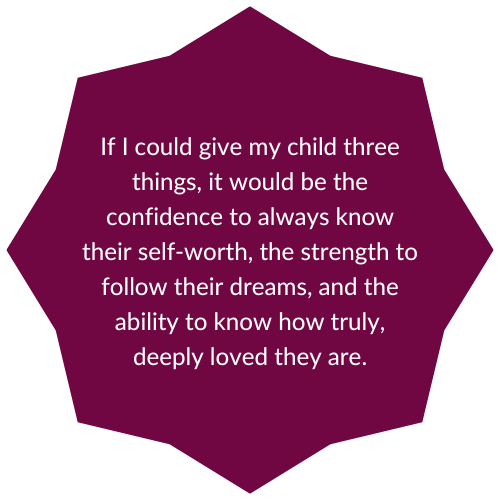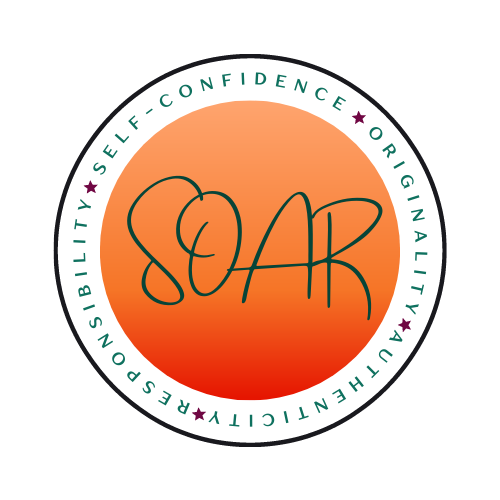Bring SOAR to your Community
SOAR’s mission is to support youth in owning their voices, building self-confidence, embracing their individuality, creating community, and tapping into emotional intelligence.


Meet & Greet
Group Coffee Meetup with Debbie
Debbie will be happy to make herself available to groups of parents, coaches, or educators in any field to elaborate on how SOAR can benefit your particular group.
Ages 10-18 Workshops
“Soar” approaches adolescent/teen challenges with interactive workshops filled with humor, self-discovery, and compassion. Your child will leave the workshop with the following life skills:
-
Active listening and communication skills
-
A newfound sense of confidence
-
Skills to manage conflict resolution
-
Develop a greater sense of independence
-
Leadership skills
-
How to collaborate with peers
-
Connecting with new friends
-
An understanding of compassion and empathy
-
Ability to navigate social environments
-
Tools for managing stress and anxiety
-
How to create community
Customized Workshops
“Soar” approaches team building and a commitment to excellence in interactive workshops filled with humor, self- discovery, and compassion. The following are organizations that can benefit from SOAR’s Adolescent and Teen Workshops:
-
-
Schools
Schools that know how important it is for students to develop tools and life skills, including: self-confidence, the ability to create community, navigate social environments, understand compassion and empathy, being their most authentic selves, and cultivate skills in conflict resolution
-
Performing arts programs
Performing arts programs that want students to have an understanding that excellence in the arts is based in the ability to ground themselves, be authentic, collaborate, connect, build ensemble, manage stress and anxiety, and refine active listening and communication
-
Youth organizations
Youth organizations dedicated to their members building self-confidence, creating community, understanding compassion and empathy, becoming leaders in their group and in their communities, foster communication skills, and being able navigate complicated social environments
Beyond Talent: The EQ Advantage in Youth Programs
Re-imagine your Dance and Drama Programs with Emotional Intelligence in mind.
Questions to ask yourself as the Studio or Company when evaluating how Emotional Intelligence can enhance your program's impact and success.
Dance Studios
How do you measure success in your dance programs beyond just competition results and performances?
What essential life skills do you believe dancers should develop as part of their training?
How are you currently addressing the emotional needs of your dancers, especially during high-pressure times like competitions?
Can you recall a situation where a dancer's emotional reaction impacted their performance or the team dynamic? What could have been done differently?
How do you support dancers in feeling valued and included within the studio community?
How do you foster communication among your dancers, especially in a competitive environment?
What impact do you believe developing self-awareness can have on your dancers' performances and overall experience?
What challenges do you face in creating a cohesive team environment, and how might EQ help address those challenges?
How do you navigate conflicts among dancers during rehearsals, and what strategies do you use to resolve them?
How might fostering EQ within your studio culture influence your dancers’ long-term success, both in dance and in life?
Theater Companies
How do you define success for your theater program beyond just the final performances?
What skills do you believe are essential for young performers to develop as part of their theater education?
In what ways do you currently support your students in expressing their emotions both on stage and in their personal lives?
Can you think of a time when a student’s emotional state affected their performance or the group dynamic? How could that have been addressed better?
What role do empathy and understanding play in building strong relationships between cast members?
How do you create an inclusive environment where all students feel valued and supported in your program?
What strategies do you have in place to help students manage performance anxiety or stage fright?
How do you encourage students to receive and give constructive feedback during rehearsals?
How do you address conflicts that arise among students, and what techniques do you use to resolve those conflicts?
How would students being able to express themselves in a truly authentic and vulnerable manner serve them in performance and day to day life?
Participants Testimonials
© Copyrights by SOAR. All Rights Reserved.


